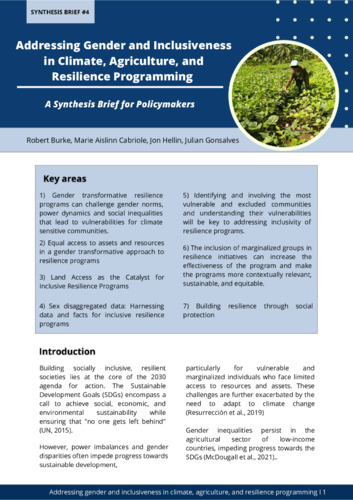Addressing Gender and Inclusiveness in Climate, Agriculture, and Resilience Programming
Abstract
This policy brief explores key strategies for integrating gender and inclusiveness into resilience programs. Gender-transformative resilience initiatives can challenge gender norms, power dynamics, and social inequalities that increase vulnerabilities in climate-sensitive communities. Ensuring equal access to assets and resources through a gender-transformative approach is vital for building resilience.
Land access emerges as a catalyst for inclusive resilience programs, while sex-disaggregated data provides critical insights to make programs more inclusive. Identifying and involving the most vulnerable and excluded communities is crucial for understanding and addressing their specific needs. The inclusion of marginalized groups enhances program effectiveness, making resilience initiatives more contextually relevant, sustainable, and equitable.
This brief offers guidance for creating resilience programs that promote gender equity and inclusiveness in the face of climate challenges.

